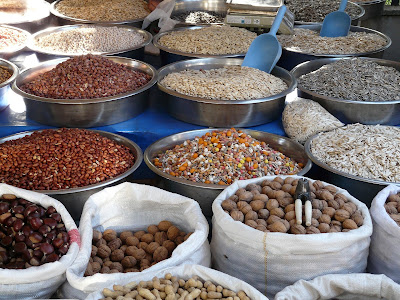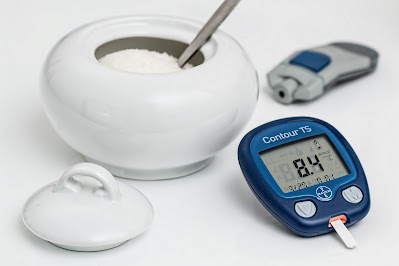Here are 20 nuts, seeds, and grains known for their anti-inflammatory properties:
Nuts:
Almonds: Rich in healthy fats and antioxidants, including vitamin E, which have anti-inflammatory effects.
Walnuts: Packed with omega-3 fatty acids and antioxidants, which possess anti-inflammatory benefits.
Pistachios: Contain antioxidants and phytochemicals that help reduce inflammation.
Pecans: Rich in antioxidants, such as ellagic acid, that have anti-inflammatory properties.
Brazil nuts: Provide selenium, an antioxidant mineral that helps counter inflammation.
Seeds:
6. Flaxseeds: Rich in alpha-linolenic acid (ALA), an omega-3 fatty acid, and lignans, which possess anti-inflammatory effects.
Chia seeds: Packed with omega-3 fatty acids, fiber, and antioxidants, contributing to their anti-inflammatory properties.
Hemp seeds: Contain omega-3 fatty acids, gamma-linolenic acid (GLA), and other compounds with anti-inflammatory benefits.
Pumpkin seeds: Provide antioxidants, including vitamin E and carotenoids, which help reduce inflammation.
Sesame seeds: Contain lignans, vitamin E, and other compounds that possess anti-inflammatory properties.
Grains:
11. Whole grains: Examples include brown rice, quinoa, oats, and barley, which are rich in fiber and contain antioxidants, contributing to their anti-inflammatory effects.
Whole wheat: Contains fiber and phytochemicals, such as ferulic acid, which possess anti-inflammatory benefits.
Buckwheat: Rich in antioxidants, including rutin and quercetin, which help reduce inflammation.
Millet: Provides antioxidants, fiber, and minerals that contribute to its anti-inflammatory properties.
Amaranth: Contains compounds, such as squalene and flavonoids, that possess anti-inflammatory effects.
Other:
16. Cocoa: Dark chocolate with high cocoa content contains flavonoids and antioxidants that have anti-inflammatory benefits.
Green tea: Rich in polyphenols, such as epigallocatechin gallate (EGCG), which have anti-inflammatory and antioxidant properties.
Coffee: Contains polyphenols and other compounds that have anti-inflammatory effects.
Extra virgin olive oil: Although not a nut or seed, it's worth mentioning for its anti-inflammatory properties due to its high content of oleic acid and antioxidants.
Cinnamon: Contains compounds that possess anti-inflammatory and antioxidant effects.
Incorporating these nuts, seeds, and grains into your diet can contribute to an anti-inflammatory eating pattern. Remember to consume them in moderation as part of a well-rounded and balanced diet.
Weight Loss Without Starvation
Weight Loss Without Starvation - All About Mediterranean Diets, Belly Fat Burning Foods, Healthy Eating Vegan No Carbs Diets To Lose Weight Fast, Lose Belly Fat Fast, Lose Fat Quickly Without Lethargy.
Thursday, May 18, 2023
Top 20 Nuts Seeds And Grains With Anti-Inflammatory Properties
Thursday, April 27, 2023
Top 10 Spices That Promote Insulin Sensitivity
Insulin sensitivity refers to the ability of the body's cells to respond to insulin and utilize glucose from the blood for energy. When the body becomes insulin resistant, it means that the cells are not responding to insulin properly, leading to elevated blood sugar levels, which can contribute to various health problems, including diabetes and cardiovascular disease.
Here are the top 10 spices that promote insulin sensitivity:
Cinnamon: Studies have shown that cinnamon can improve insulin sensitivity by increasing glucose uptake in the cells.
Turmeric: Curcumin, the active ingredient in turmeric, has been shown to improve insulin sensitivity and reduce inflammation.
Fenugreek: This spice contains compounds that can improve insulin sensitivity and reduce blood sugar levels.
Ginger: Ginger has been shown to improve insulin sensitivity and reduce inflammation in the body.
Garlic: Garlic can improve insulin sensitivity and reduce blood sugar levels by increasing insulin secretion.
Black pepper: Piperine, the active ingredient in black pepper, can improve insulin sensitivity and reduce inflammation.
Rosemary: This herb contains compounds that can improve insulin sensitivity and reduce inflammation.
Sage: Sage has been shown to improve insulin sensitivity and reduce inflammation in the body.
Cloves: Cloves can improve insulin sensitivity and reduce blood sugar levels by increasing insulin secretion.
Oregano: Oregano contains compounds that can improve insulin sensitivity and reduce inflammation.
It is worth noting that while adding these spices to your diet may help improve insulin sensitivity, it is important to follow a balanced and healthy diet and lifestyle to maintain good health.
Monday, April 17, 2023
How Does Insulin Sensitivity Effect Weight Loss
Insulin sensitivity refers to the body's ability to respond to insulin, a hormone that helps regulate blood sugar levels. When insulin sensitivity is high, the body is able to use insulin effectively to transport glucose (sugar) from the bloodstream into the cells, where it can be used for energy.
On the other hand, when insulin sensitivity is low, the body's cells become resistant to insulin, meaning that they don't respond as well to the hormone. This can lead to high blood sugar levels, as the glucose remains in the bloodstream rather than being transported into the cells.
Insulin sensitivity can have an impact on weight and fat loss because insulin is involved in the regulation of fat storage and metabolism. When insulin levels are high, the body is in a "storage" mode, meaning that it is more likely to store excess glucose as fat rather than burning it for energy. Additionally, insulin resistance is often associated with increased levels of inflammation, which can make it more difficult to lose weight and burn fat.
Improving insulin sensitivity can be helpful for weight and fat loss. This can be achieved through a healthy diet, regular exercise, and adequate sleep. Eating a balanced diet that is low in refined carbohydrates and high in fiber can help to regulate blood sugar levels and improve insulin sensitivity. Engaging in regular physical activity can also help to improve insulin sensitivity, as exercise increases the body's ability to use glucose for energy. Finally, getting enough sleep is important for regulating hormones, including insulin, and improving overall health.


